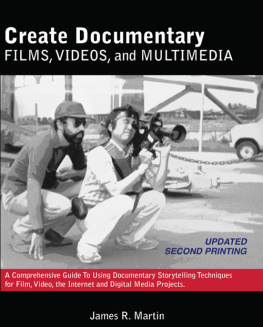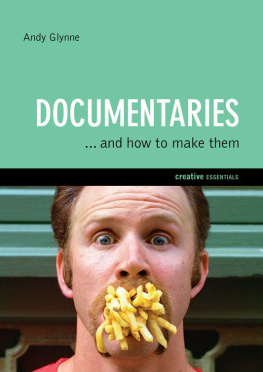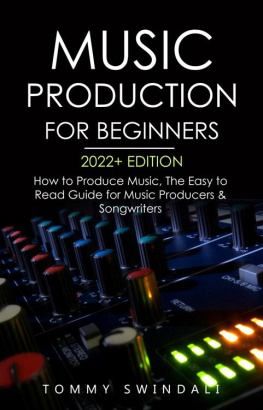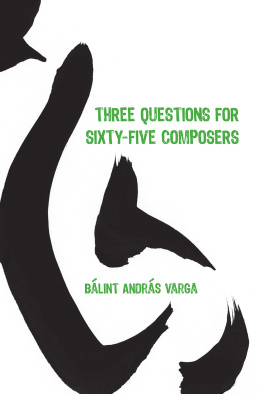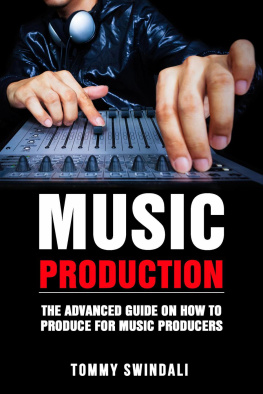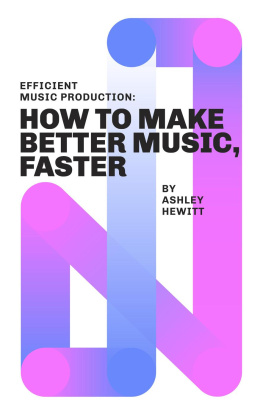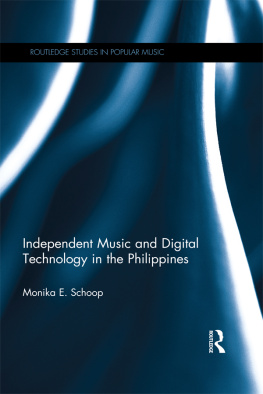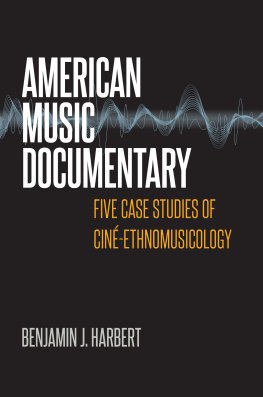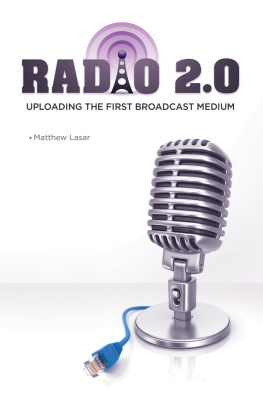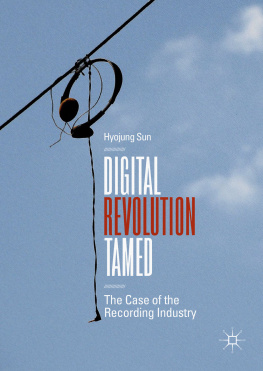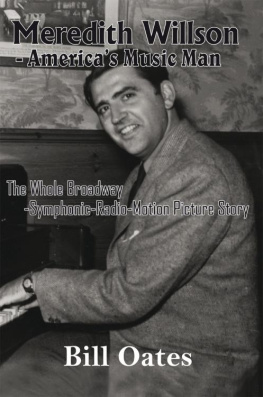MUSIC DOCUMENTARIES FOR RADIO
Drawing on both academic research and real world practice, this book offers an in-depth investigation into the production of music documentaries broadcast on radio.
Music Documentaries for Radio provides a thorough overview of how the genre has developed technically and editorially alongside a discussion of the practical production processes involved. Digital production equipment and online tools used in music documentary production are discussed in detail, outlining how the development of these technologies shapes the output of producers operating in both the public service and the commercial sectors of the industry. Drawing on his own experiences as an award-winning music documentary producer, the author also looks at how the industry views this form of radio documentary and considers how innovation and technical advances, as well as governmental regulation, have shaped the field. The book demonstrates how changing practices and technical innovations have led to the emergence of multi-skilled, freelance radio producers and how previously separate production roles have merged into one convergent, multifaceted position.
Music Documentaries for Radio is an ideal resource for students and academics in the fields of radio studies, media production, documentary-making, and journalism studies.
Sam Coley teaches audio production at Birmingham City University and continues to work as a freelance music documentary producer. He has written about popular music, fandom, and new participatory cultures in radio documentary production. Dr Coley is a Trustee of the Charles Parker Archive Trust and serves as a Grand Jury member for the New York Festivals Radio Awards.
MUSIC DOCUMENTARIES FOR RADIO
Sam Coley
First published 2022
by Routledge
2 Park Square, Milton Park, Abingdon, Oxon OX14 4RN
and by Routledge
605 Third Avenue, New York, NY 10158
Routledge is an imprint of the Taylor & Francis Group, an informa business
2022 Sam Coley
The right of Sam Coley to be identified as author of this work has been asserted in accordance with sections 77 and 78 of the Copyright, Designs and Patents Act 1988.
All rights reserved. No part of this book may be reprinted or reproduced or utilised in any form or by any electronic, mechanical, or other means, now known or hereafter invented, including photocopying and recording, or in any information storage or retrieval system, without permission in writing from the publishers.
Trademark notice: Product or corporate names may be trademarks or registered trademarks, and are used only for identification and explanation without intent to infringe.
British Library Cataloguing-in-Publication Data
A catalogue record for this book is available from the British Library
Library of Congress Cataloging-in-Publication Data
Names: Coley, Sam (Sam J) author.
Title: Music documentaries for radio/Sam Coley.
Description: New York: Routledge, 2021. | Includes bibliographical references and index. |
Identifiers: LCCN 2021027408 | ISBN 9780367226213 (hardback) | ISBN 9780367226220 (paperback) | ISBN 9780429276095 (ebook)
Subjects: LCSH: Radio and music. | Documentary radio programsProduction and direction | Musical criticism.
Classification: LCC ML68 .C74 2021 | DDC 070.1/94dc23
LC record available at https://lccn.loc.gov/2021027408
ISBN: 9780367226213 (hbk)
ISBN: 9780367226220 (pbk)
ISBN: 9780429276095 (ebk)
DOI: 10.4324/9780429276095
Typeset in Bembo
by Deanta Global Publishing Services, Chennai, India
Contents
DOI: 10.4324/9780429276095-101
As a freelance producer of music documentaries for radio, Im naturally interested in how audiences respond to my work. That was my excuse for lurking on a fan forum dedicated to the musician Prince in April 2011. I wanted to see whether anyone had commented on a documentary I had recently made about Princes Parade album. Had I gotten something wrong? What did fans think about the track selection? Did they actually like it? Thankfully, the posters were enthusiastic and seemed to welcome the analysis of a fan favourite album on mainstream UK radio. But there was one forum post in particular that stood out to me, as it underscored what I have always felt to be one of genres strongest attributes. Danny5050 had written This is majorly awesome! Very well produced. I was jammin and learning at the same time. While the goal of entertaining an audience while educating them seems an obvious ambition for a documentary producer, I had never had a listener describe the relationship between these two editorial considerations in such a concise way before. The image of a listener jamming (a Jamaican term for celebrating through song and dance) while simultaneously gaining insight, seemed to neatly summarise my ambitions as the producer. Of course, not all music documentaries are designed to be toe tappers, but the combination of music and spoken word content can be a powerful way to engage audiences and help documentaries to connect with listeners on a deep level. In this book, I want to explore the historical framework that supports this unique form of documentary programming, as well as the production practices involved in their creation.
Attempting to define what exactly constitutes a music documentary can be difficult. It can be assumed that the purpose of the genre is to explore the creation, meaning, and legacy of either the artist(s) involved in the storyline, or the music itself. But this classification soon gets blurry. Is a radio documentary exploring Billie Holidays Strange Fruit about music or is about civil rights in America? Although the demarcation of boundaries between various forms of documentaries can be hard to determine, I suggest this is a strength of the genre. The field of music documentaries can encompass a broad range of subjects and emotions, from hard-hitting journalistic investigations to more frivolous, entertainment-driven productions.
For decades, the rock doc has been a staple of modern FM radio. Im interested in what makes music documentaries such a longstanding form of radio production and why they continue to have such appeal with programmers and audiences. In the chapters that follow, I consider how music documentaries have fitted so comfortably within the landscape of music radio formats. I suggest they are well suited to this type of programming as, in many ways, they replicate the function of the radio presenter. DJs will often share information, insight, and enthusiasm for the music they play and curate playlists that often have meaning in their own right. In a sense, they are directing listeners through a musical journey, which is similar to the intent of music documentary producers.
The music documentary is camouflaged content within music radio programming. As such, the music documentary does not have a reputation for redefining the genre. It is all too easy to create a serviceable production with just a few raw elements. There is a view that all a producer needs to do is grab some music, throw in a couple of interviews, bash out a script, and youre almost done. While there is an element of truth to this, it is certainly possible to use the genre more inventively to produce compelling music-based stories, which challenge and excite radio audiences. Nevertheless, perceived issues with the genre should be noted. It is true that many music documentaries suffer from clichd storylines which often present an androcentric, aging perspective of music history. According to Reynolds (2007), music documentaries rarely have a narrative and are generally structured through a repetitive series of disconnected events, such as recording, touring, and debauchery. Music documentaries produced by BBC Radio 1 in the eighties were criticised by Barnard (1989) for following the standard progressive interpretation of pop history. He goes on to accuse producers of creating ill-defined narratives, which tend to plot a musicians career in terms of imprecise artistic development, beginning with his or her influences and ending with the influence he or she has had on others (160). While these are fair assessments, they tend to reflect an approach used in past productions from the last century. I suggest that contemporary music documentary producers have learnt from the editorial skills of more journalistic radio documentaries and harnessed new technologies to create increasingly sophisticated productions.


